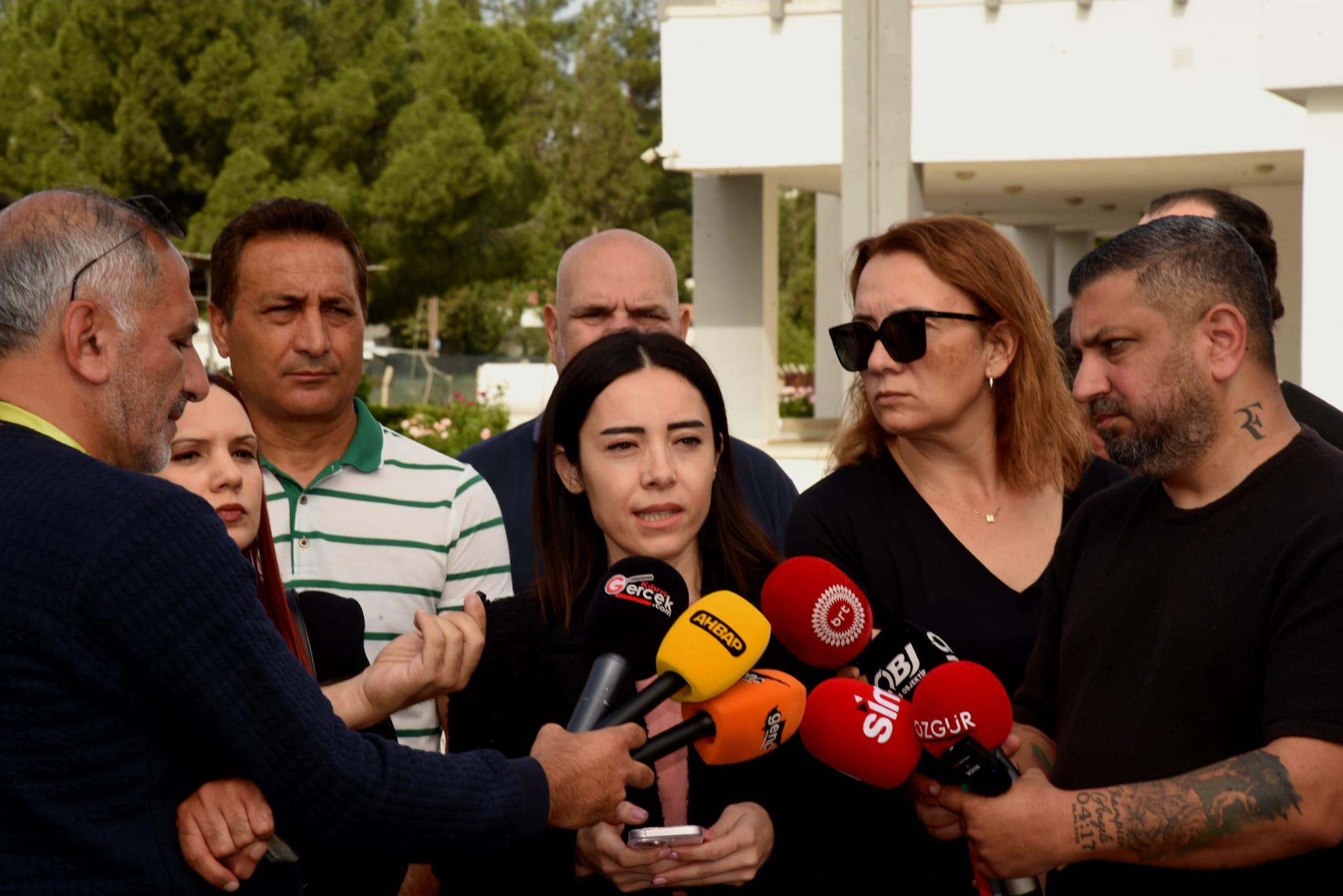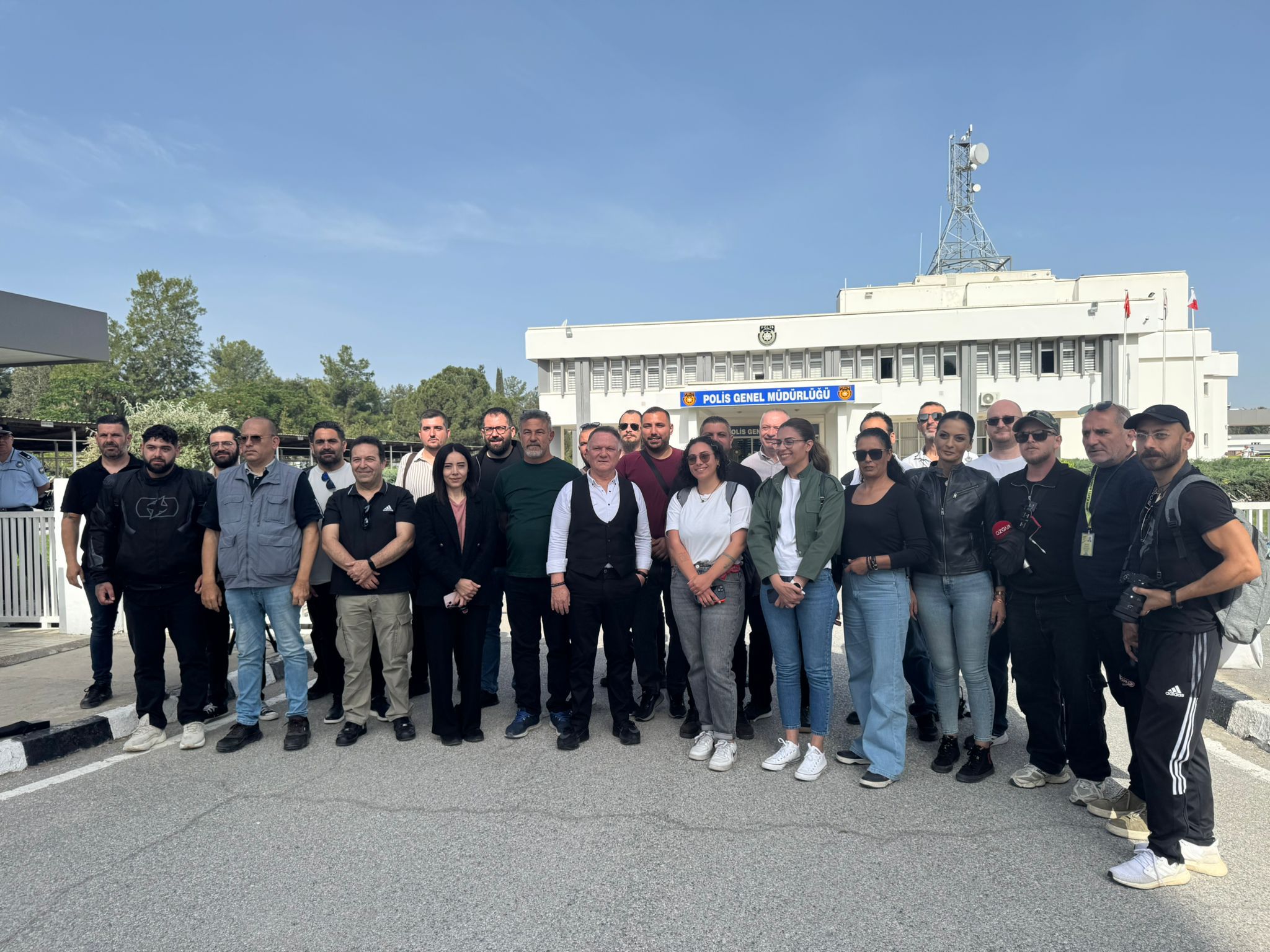A selection of Turkish Cypriot journalists gathered at the north’s police headquarters on Thursday morning to demand bolstered protection for Aysemden Akin, who received death threats after publishing a series of articles in which an interviewee had made allegations of a deep money-laundering and smuggling network based in Cyprus involving some of the most powerful men in Turkey.
Akin had found herself at loggerheads with the Turkish Cypriot police earlier in the week over the matter of protection, after she said she had been told a police car which had parked outside her front door for half an hour every morning after her interviewee, Cemil Onal, was shot dead in the Netherlands last week, would no longer be at her disposal.
The police eventually relented and promised to continue sending the police car to her house, but journalists demanded more protection, saying Akin remains unsafe with the current state of affairs.
“The Turkish Cypriot press has recently been systematically intimidated, frightened and silenced. It is both excluded and discriminated against,” Serap Sahin, representative of the Cyprus Turkish journalists’ union said in her speech outside the police headquarters.
“On the one hand, journalists are being pressured with lawsuits, and on the other hand, death threats are being ignored in silence. We will not be afraid, we will not be silent, we will not give up. Journalists will continue to pursue the truth,” she said, making reference to Turkish Cypriot leader Ersin Tatar’s filing of a 5 million TL damages lawsuit against Yeniduzen, the newspaper for which she works.
“Aysemden Akin is being subjected to death threats because she shed light on the dark relations in our country and put her byline to an interview which made headlines all over the world. Those who govern this country, the police, and the authorities to which the police are affiliated are responsible for Aysemden Akin’s safety.”
She added that her union demands “effective protection for Aysemden and Emine Yuksel”, her colleague at news website Bugun Kibris, saying they have been “under house arrest since the interview with Cemil Onal”.

“We will defend journalism, democracy, freedom of the press, and the bright future of our country until the end,” she said.
Earlier, the Turkish Cypriot police had put out a statement saying measures to protect Akin are “still being meticulously implemented”, and that “the person in question was informed about the measures she needed to take”.
It added that “considering that disclosing the measures and methods taken to ensure the safety of a person who has received a death threat would provide an advantage to criminals and further endanger the safety of the person in question, it is considered inappropriate to share this information with the public at this stage”.
Cemil Onal had given a series of interviews to Akin regarding Falyali’s dealings with the highest levels of Turkey’s government and its ruling AK Party.
Onal had made reference to “dirty money being laundered”, bribes, and a “dirty network”, and has, according to Bugun Kibris, the news website for which Akin works, handed documents to American and Dutch intelligence.
At the centre of his allegations are a reported 45 or 46 cassette tapes which Falyali had kept and intended, if and when necessary, to use as blackmail against powerful figures.
According to Onal, Erdogan and his Foreign Minister Hakan Fidan, who was also allegedly involved in the illicit business, appointed the son of longtime Erdogan ally and former controller of his discretionary funds Maksut Serim as Turkey’s ambassador in the north with the aim of recovering the tapes.
Yasin Ekrem Serim was appointed as ambassador last summer and, according to Onal, told, “get those tapes and bring them back, that is how you will rise in the state”.
However, it has been reported that while Turkey’s National intelligence organisation (Mit) had discovered that there were a total of 45 or 46 such tapes, Serim only recovered 40, and kept the other five for himself.
Turkey’s presidential communications directorate slammed the allegations, describing them as “fictitious” and “unfounded”, while the country’s foreign ministry promised to take legal action over the matter, describing the allegations as “unfounded” and “not based on any concrete evidence”.






Click here to change your cookie preferences